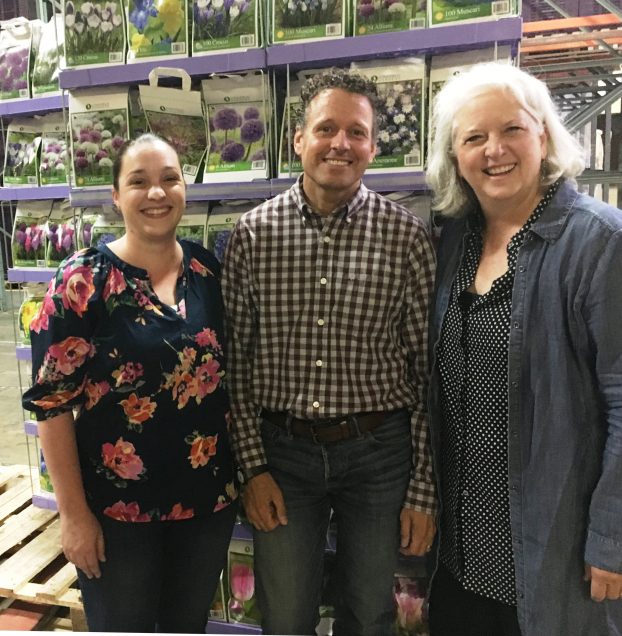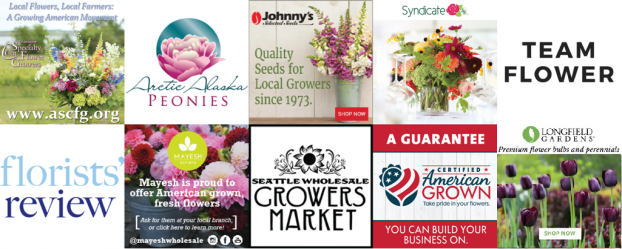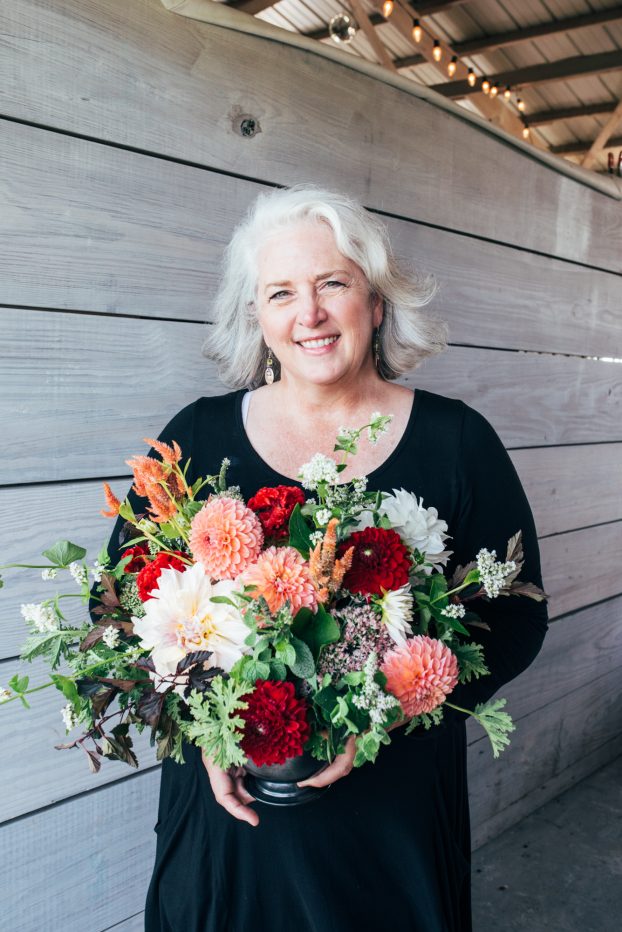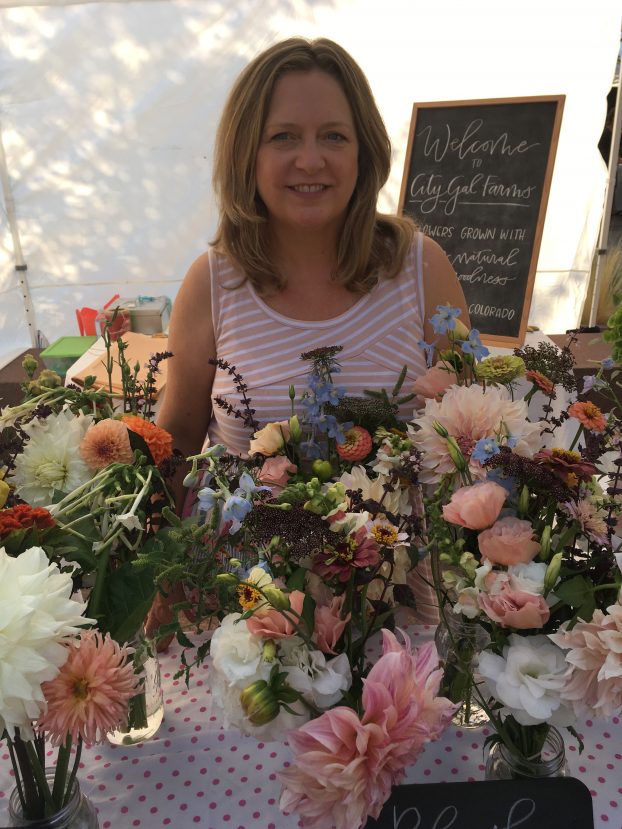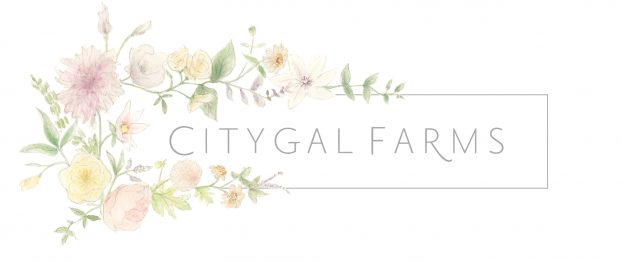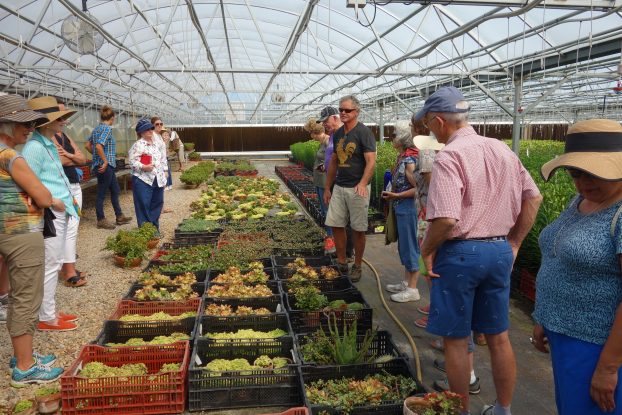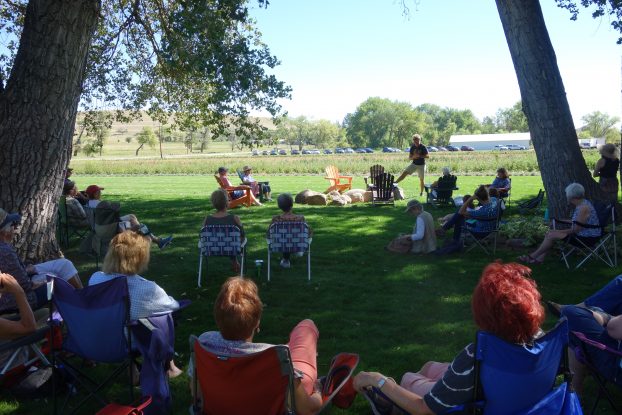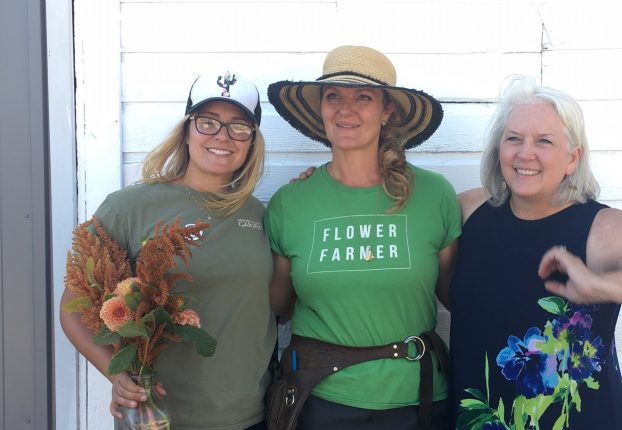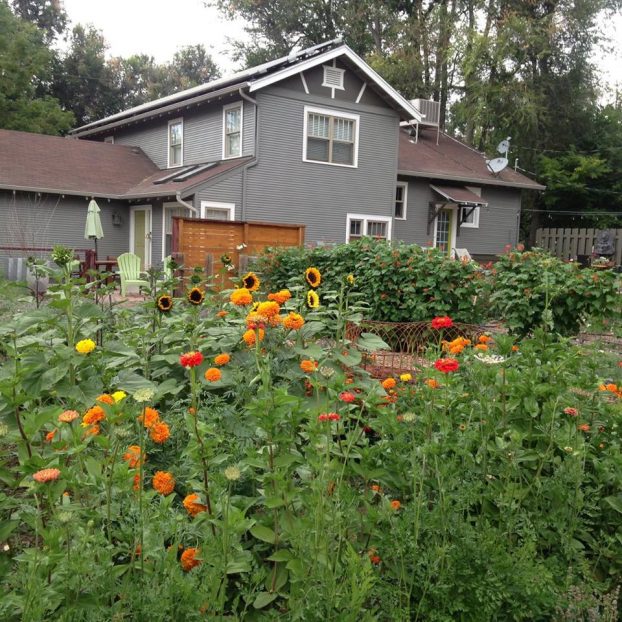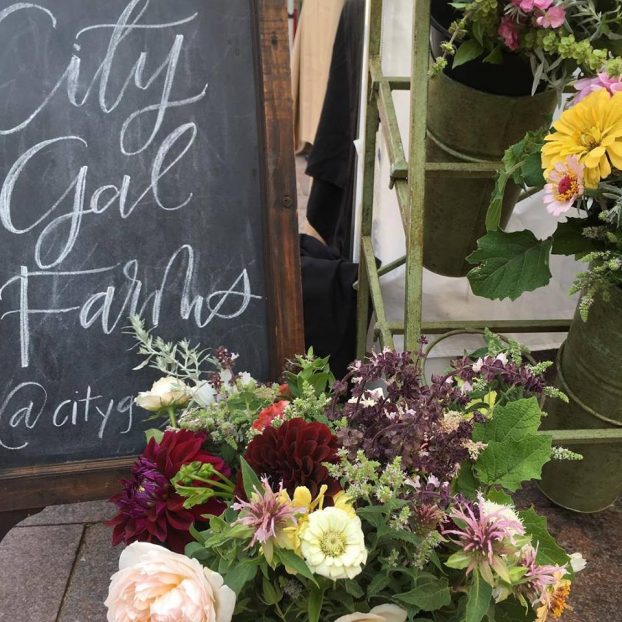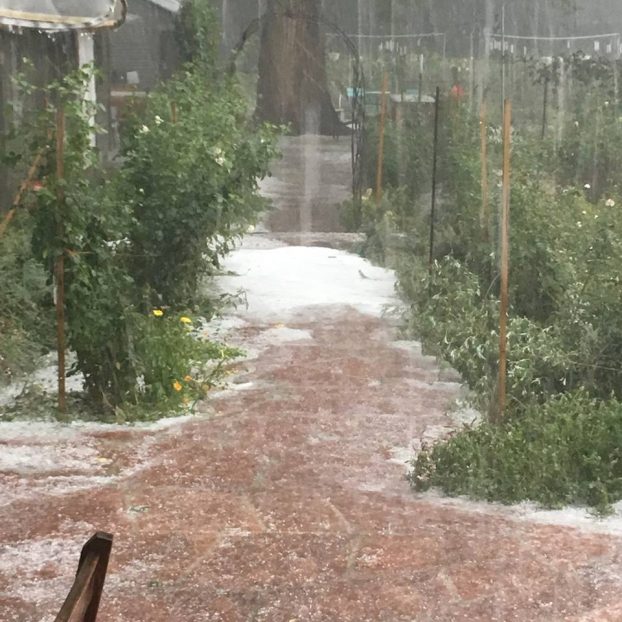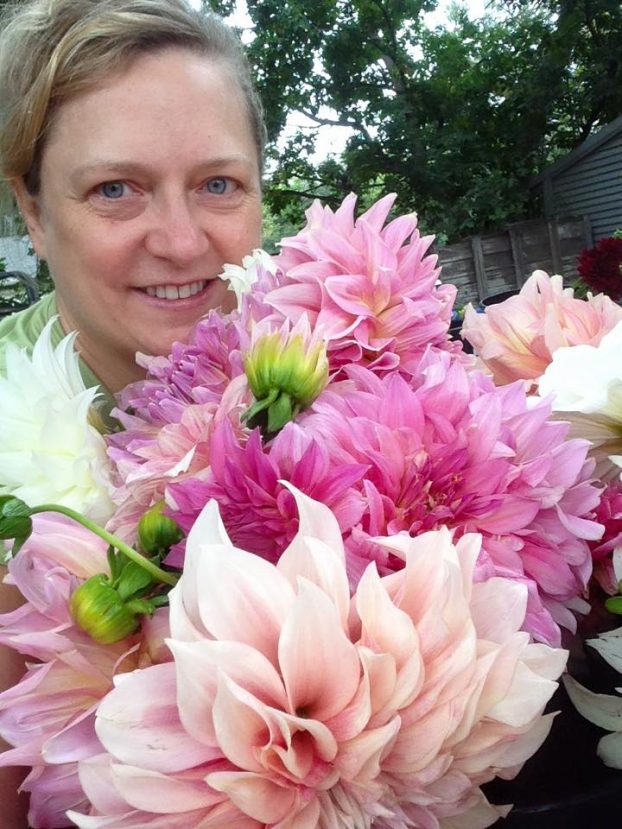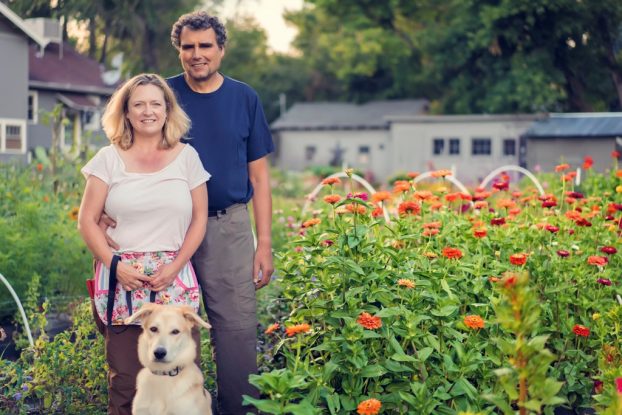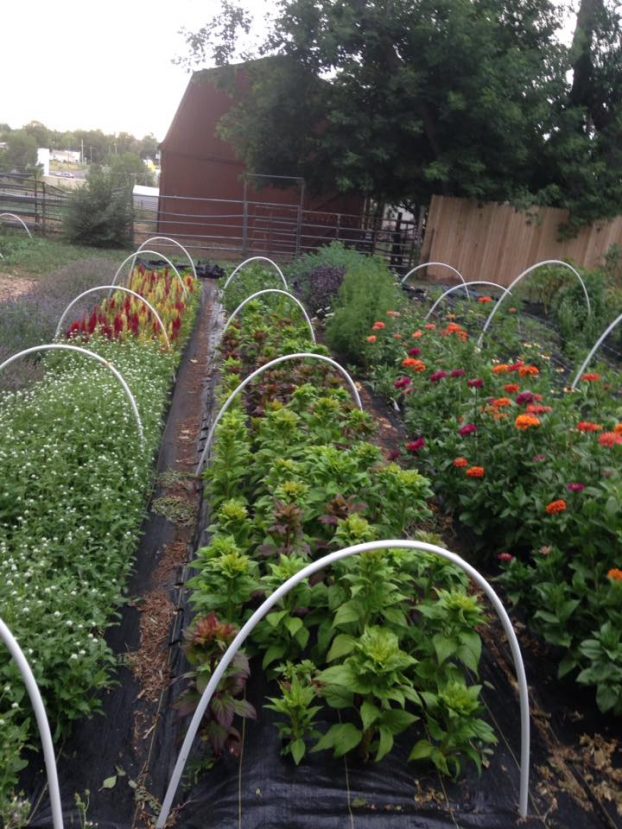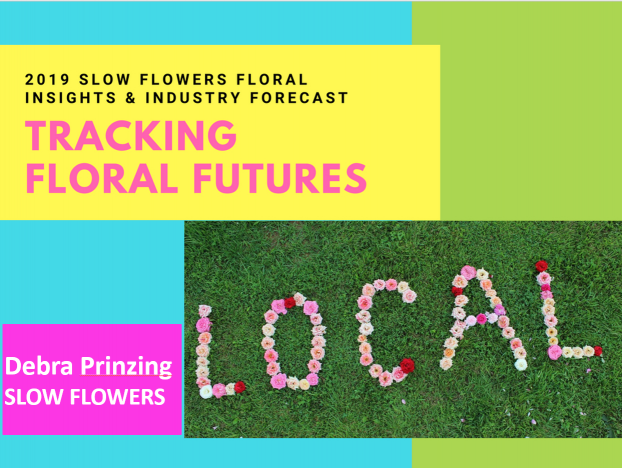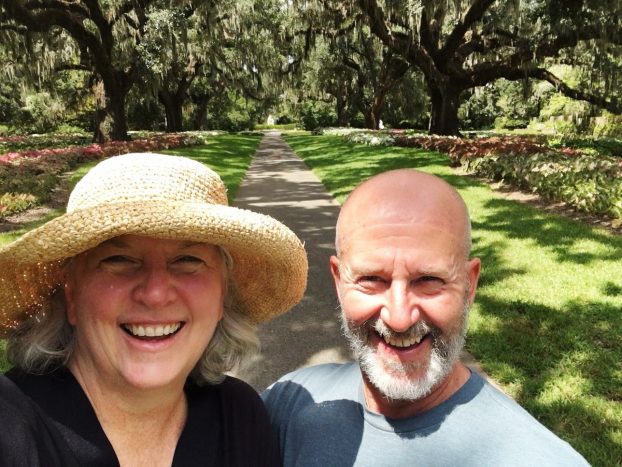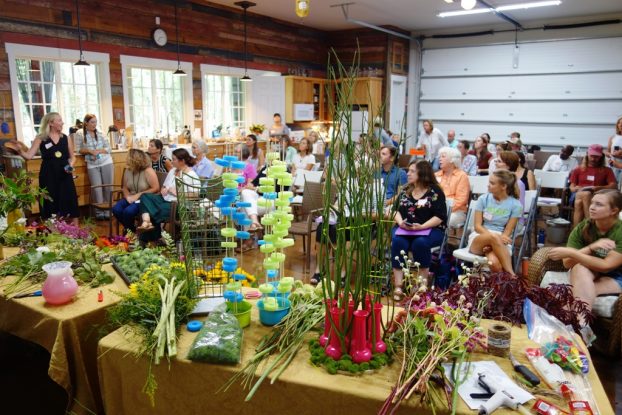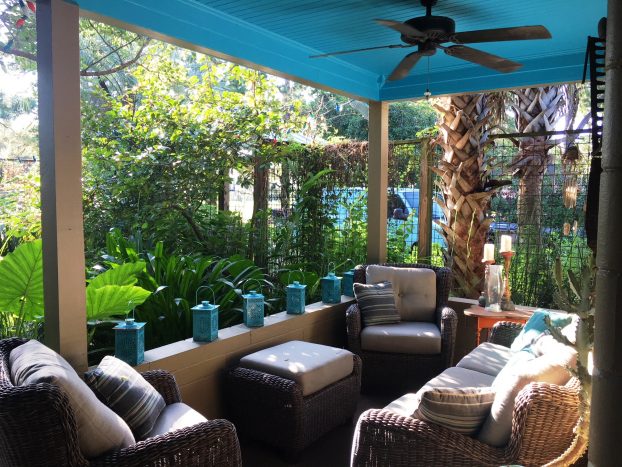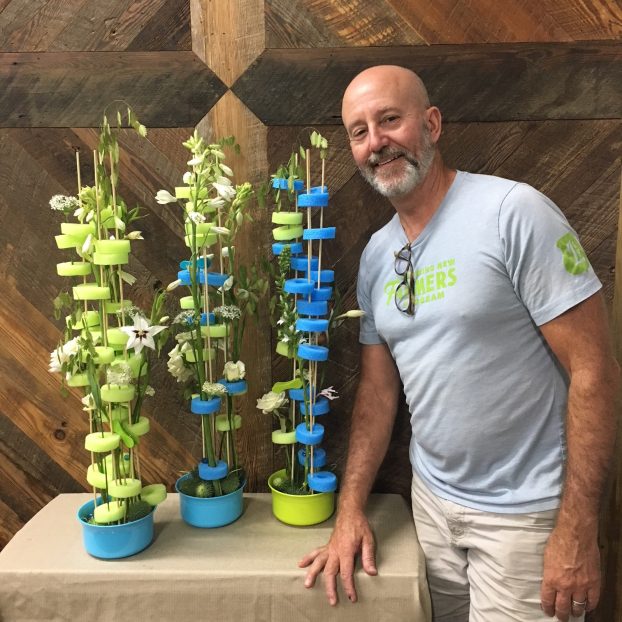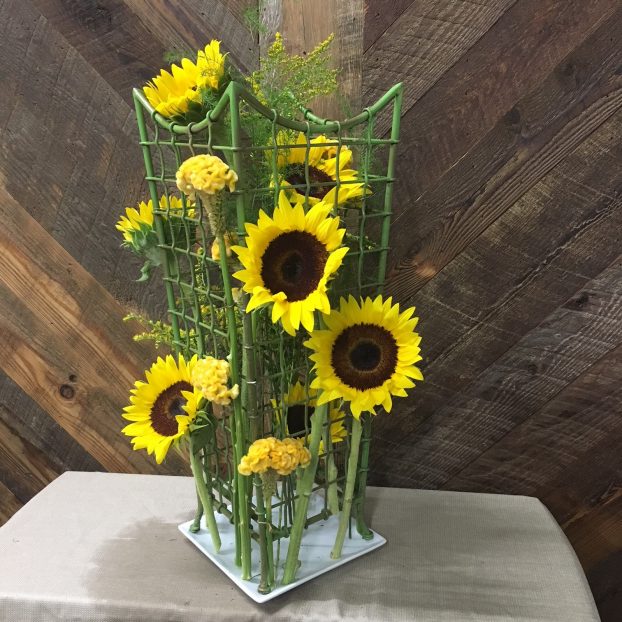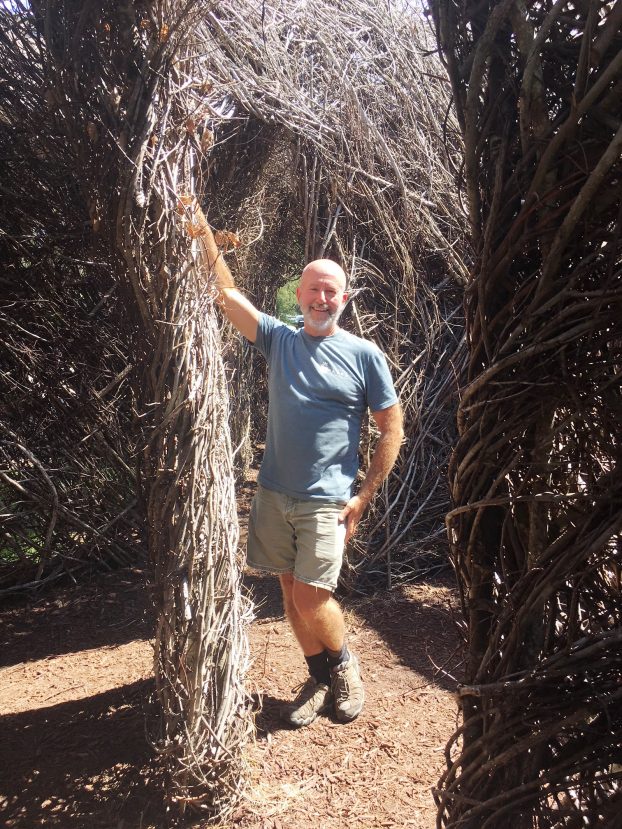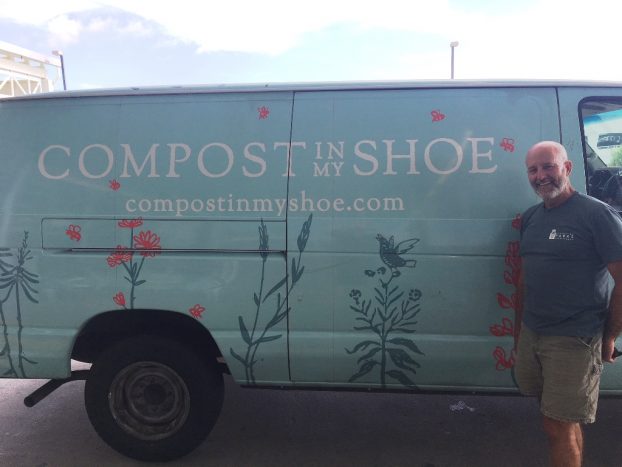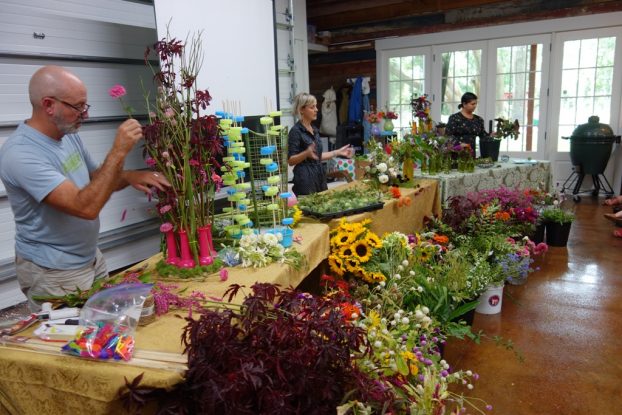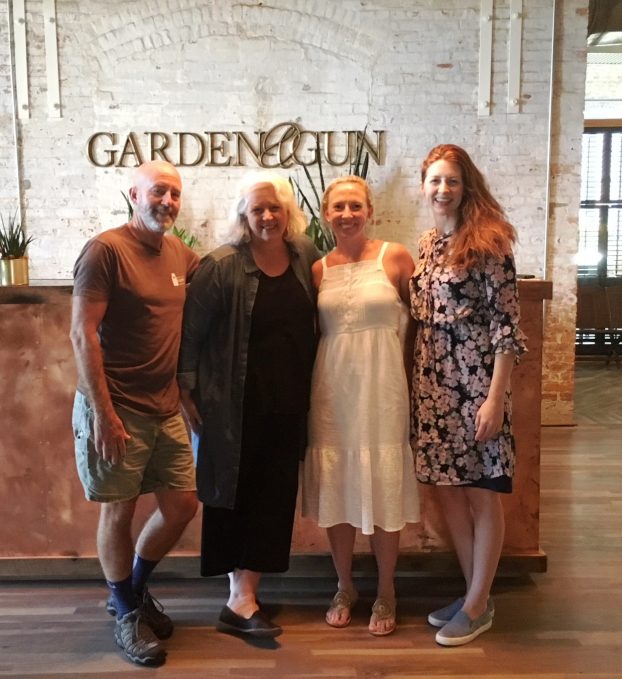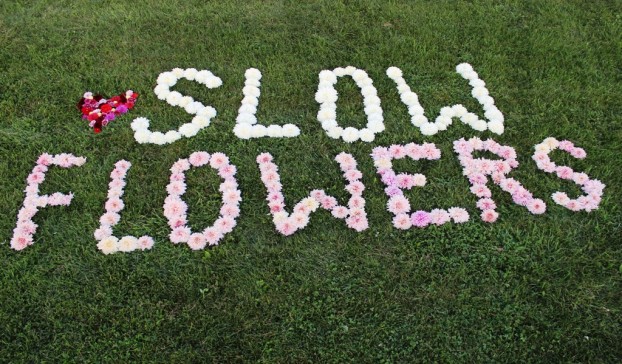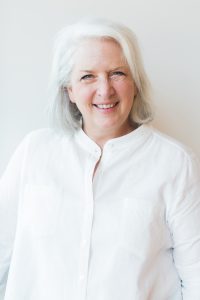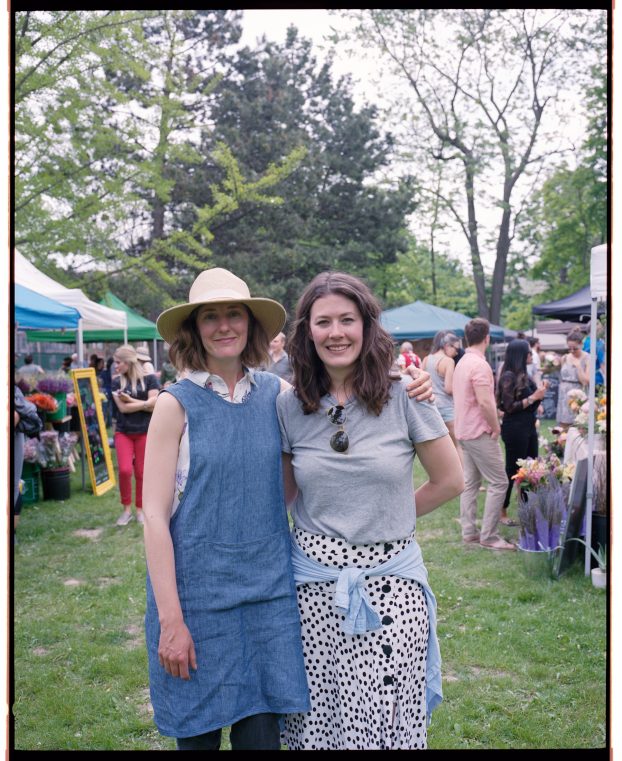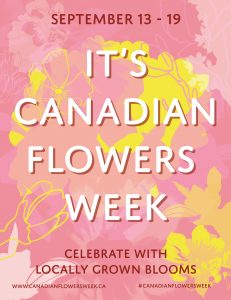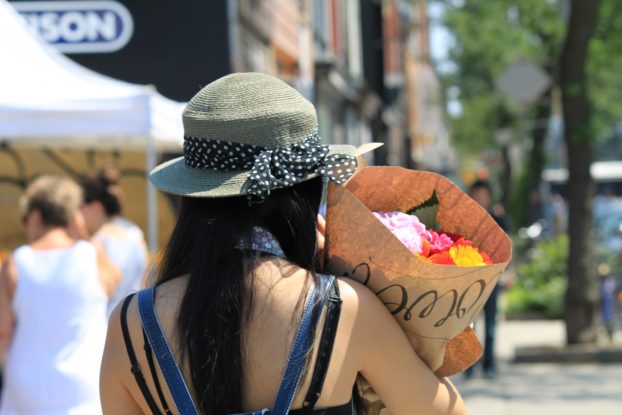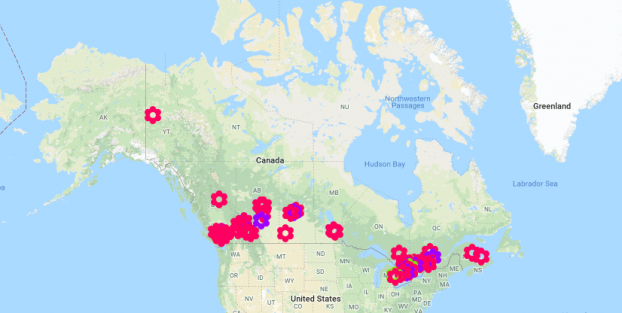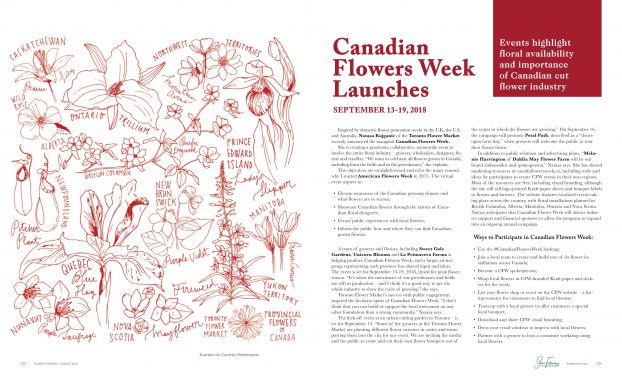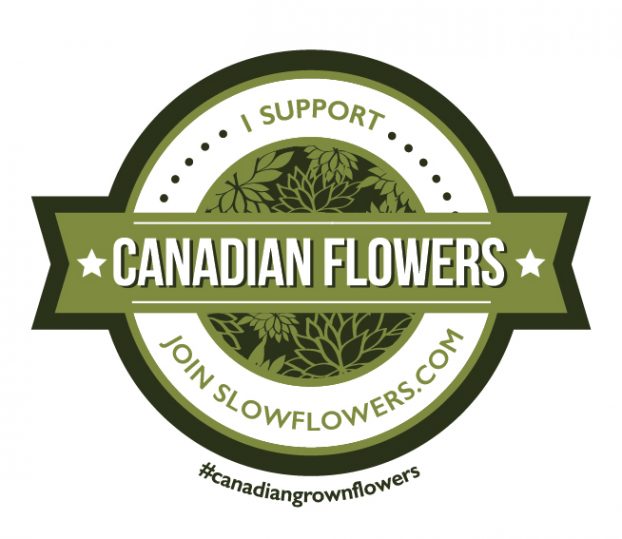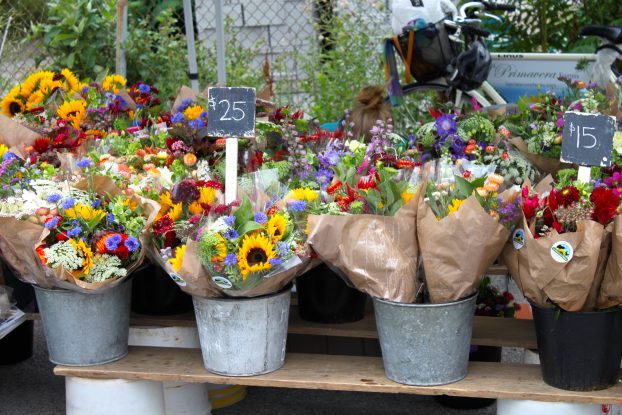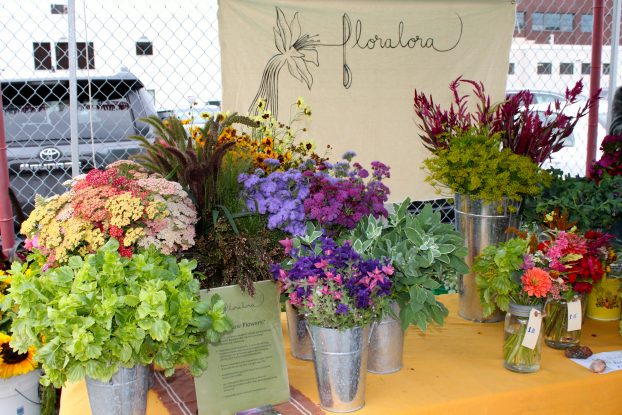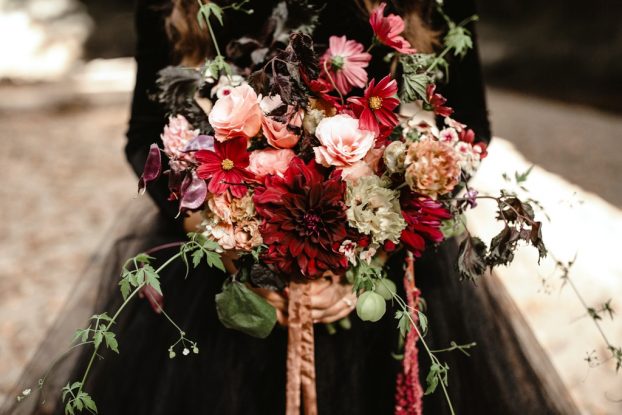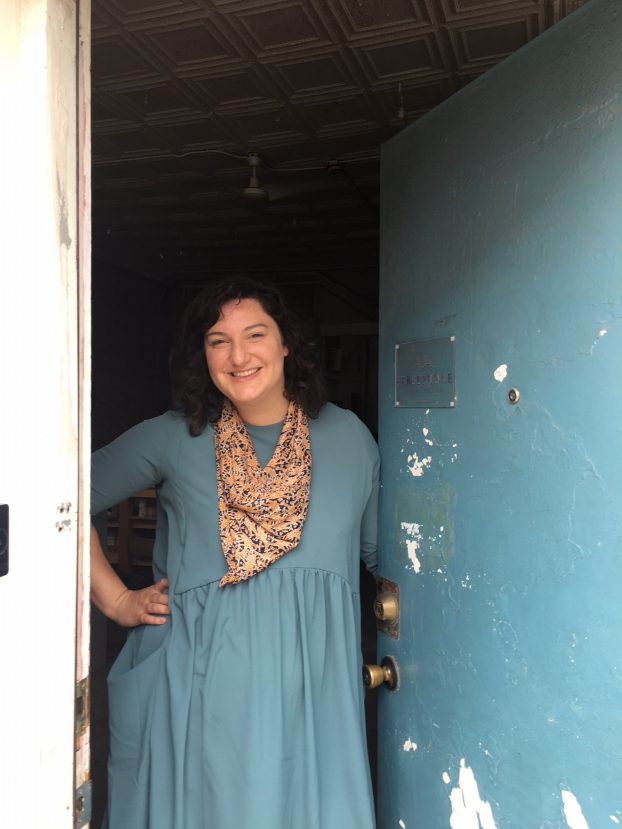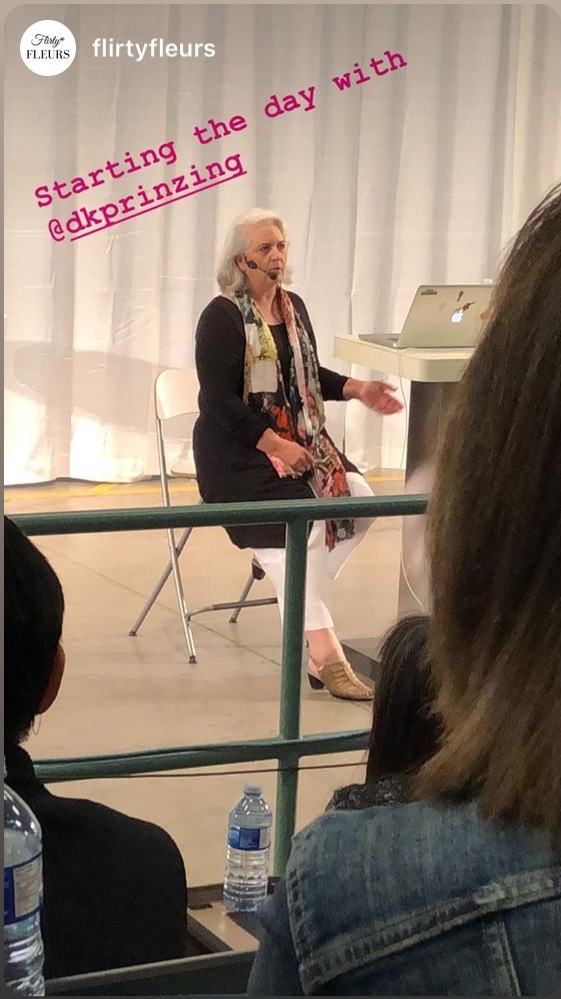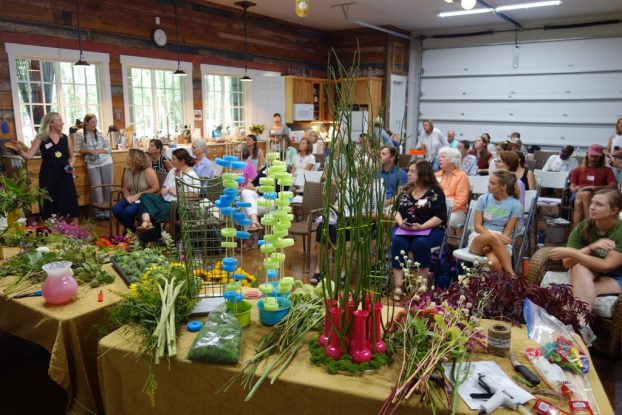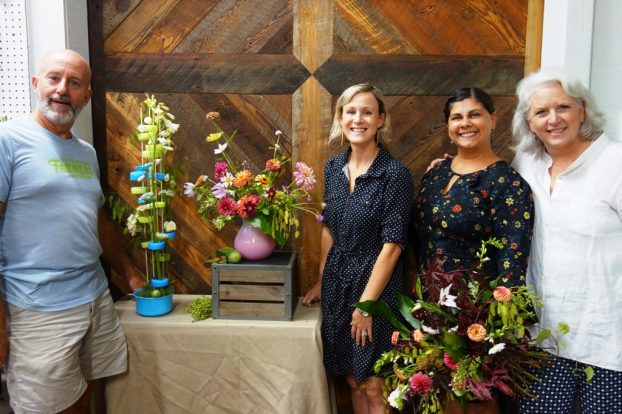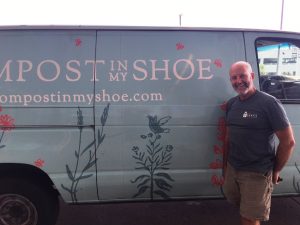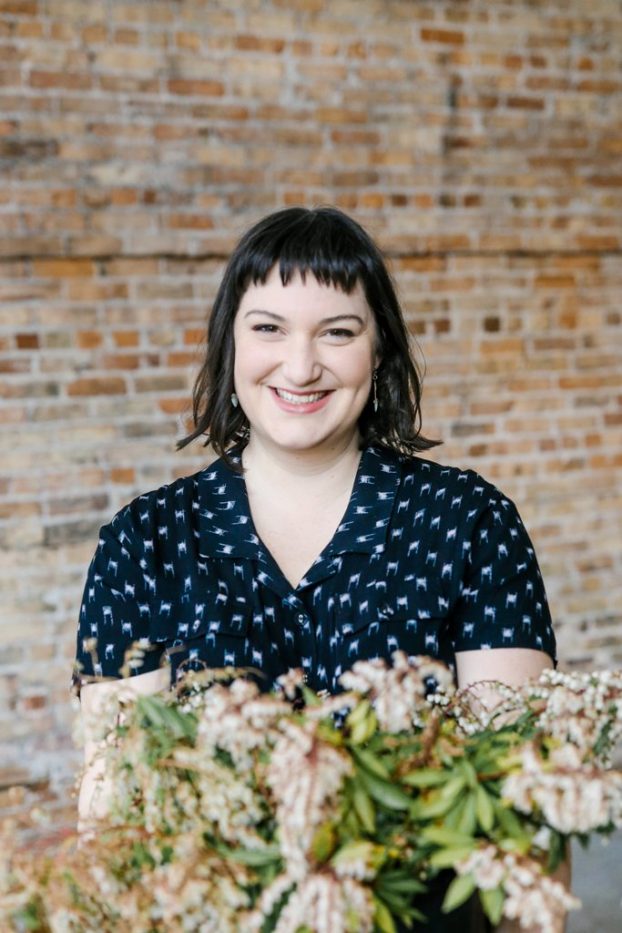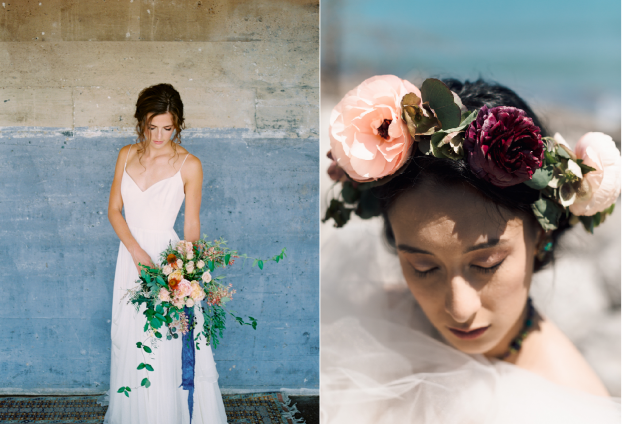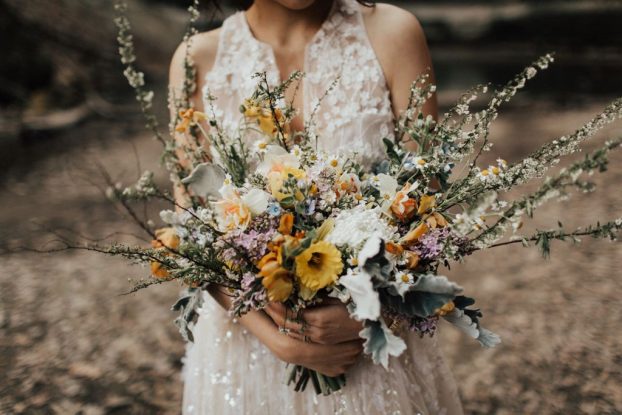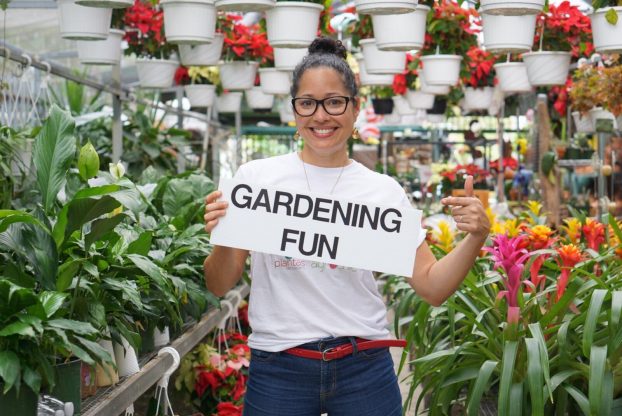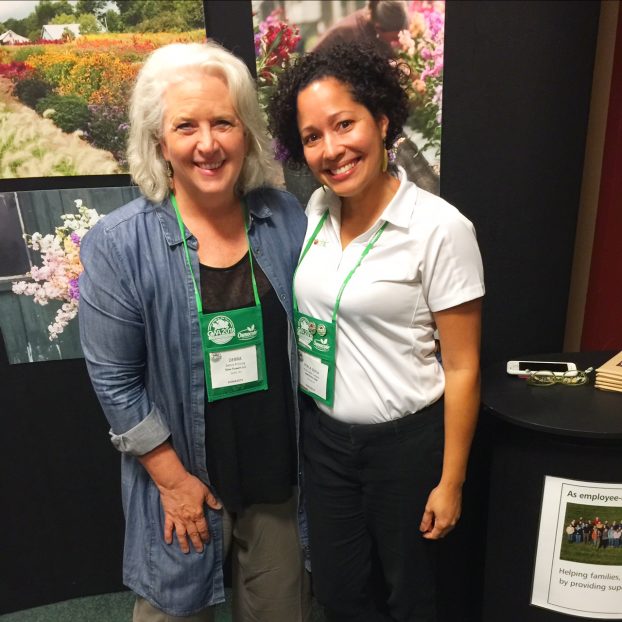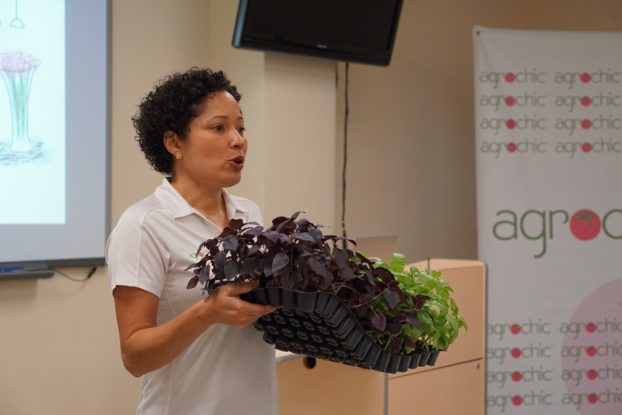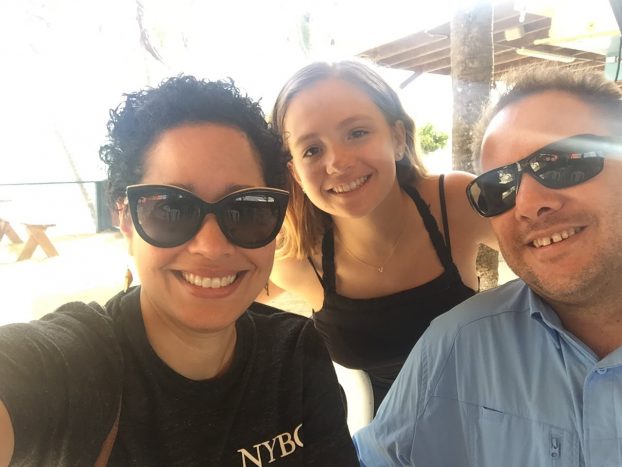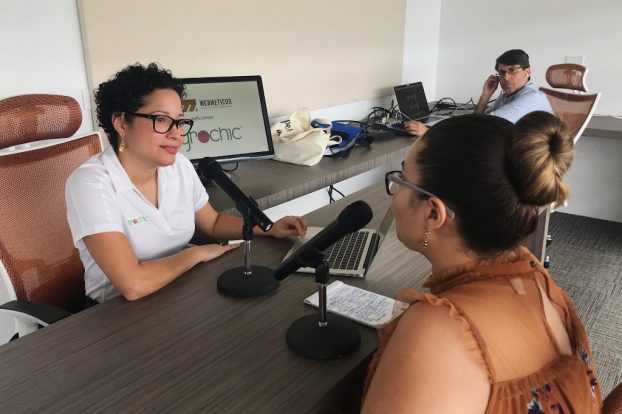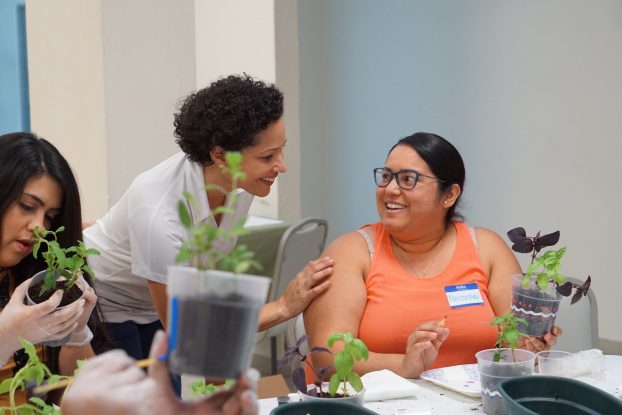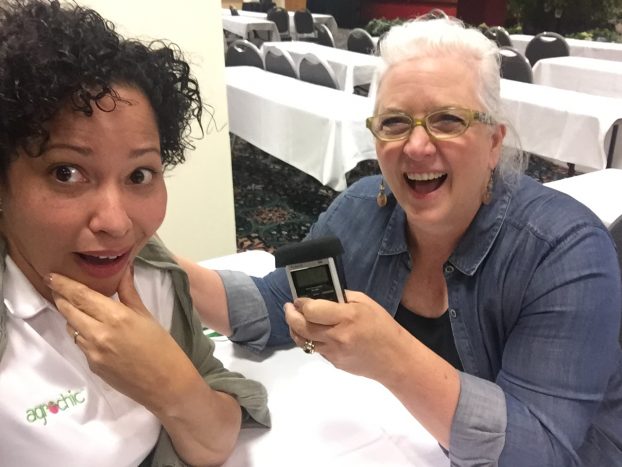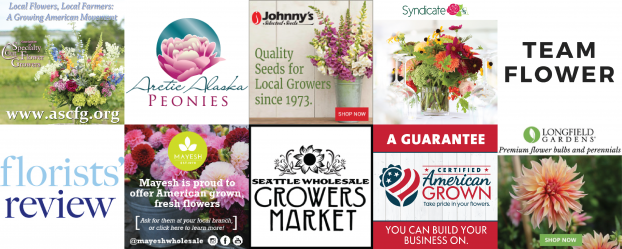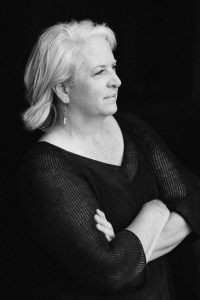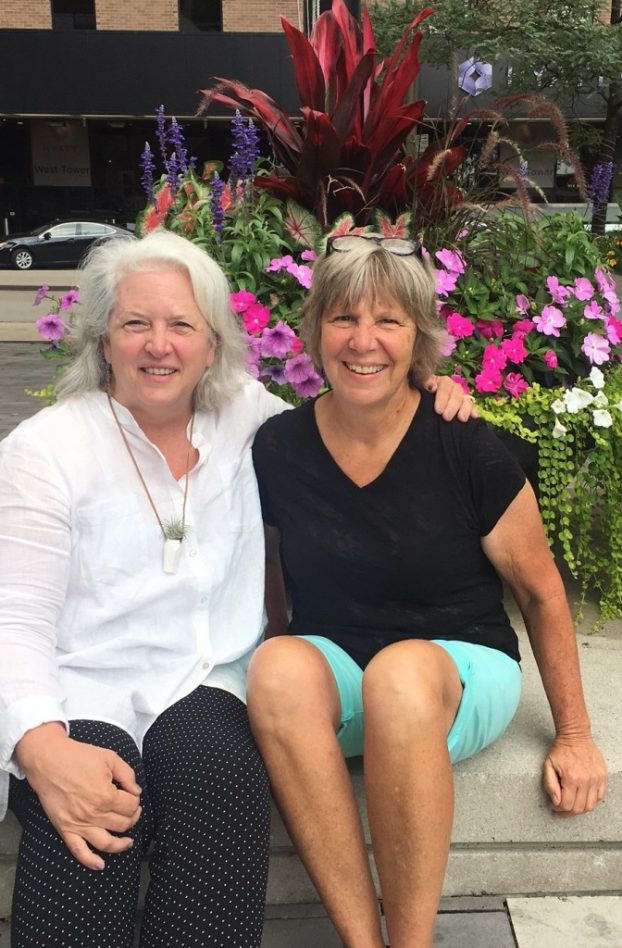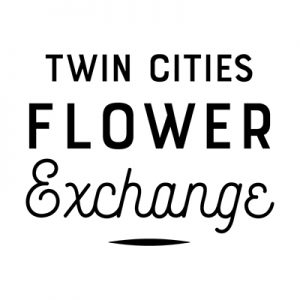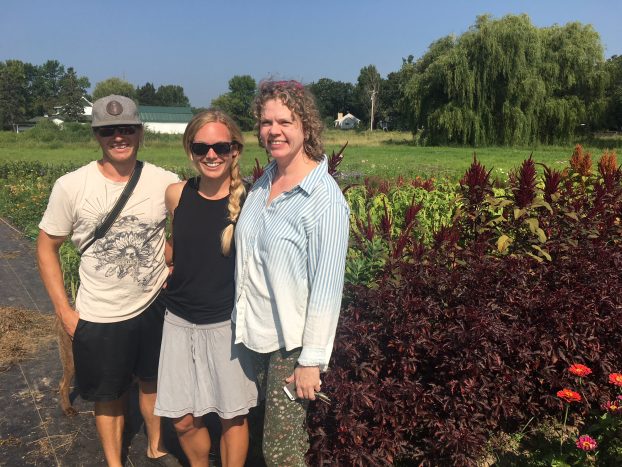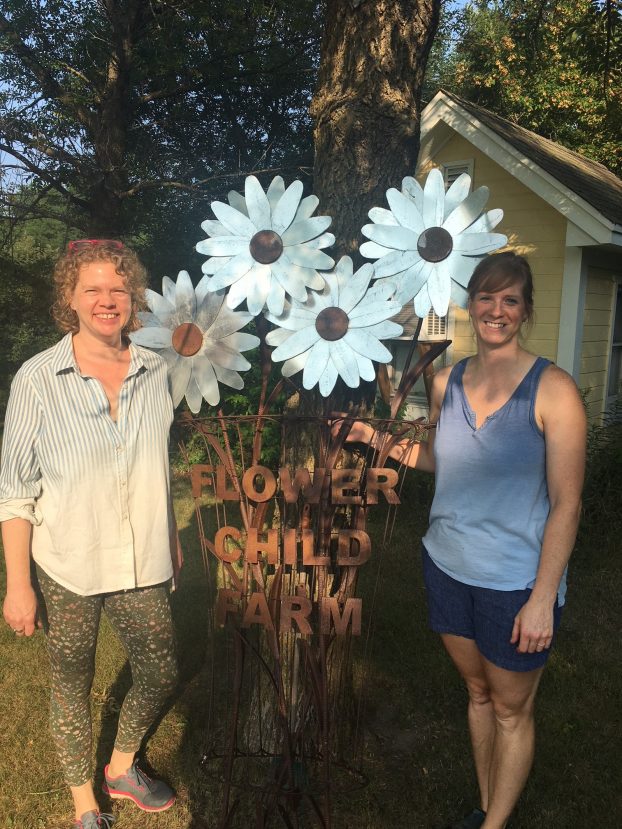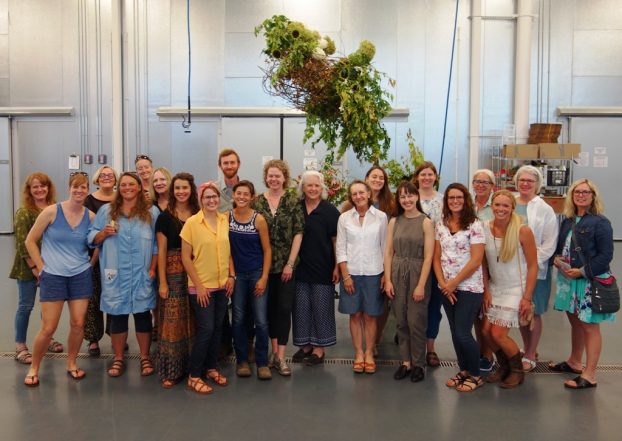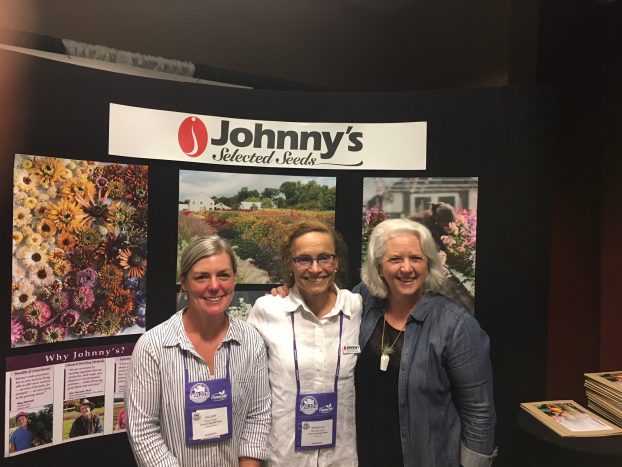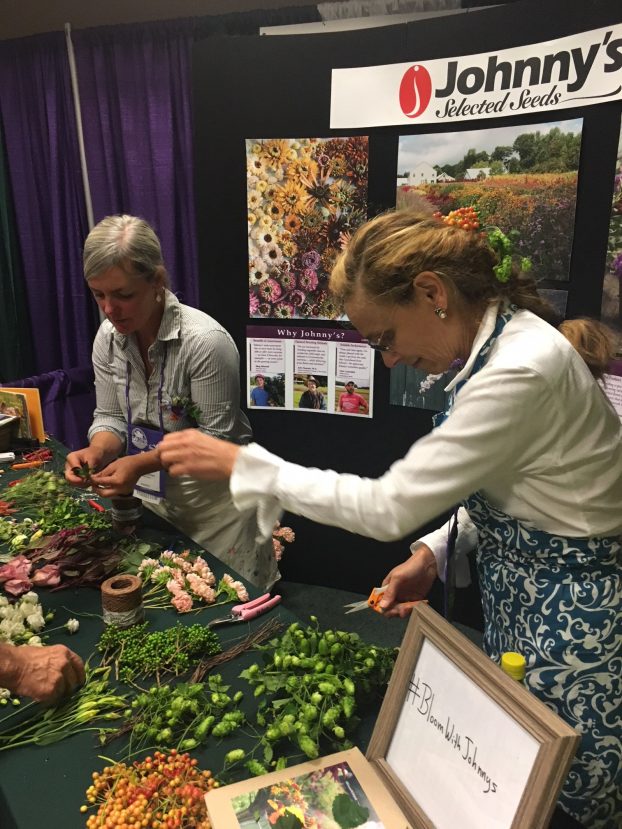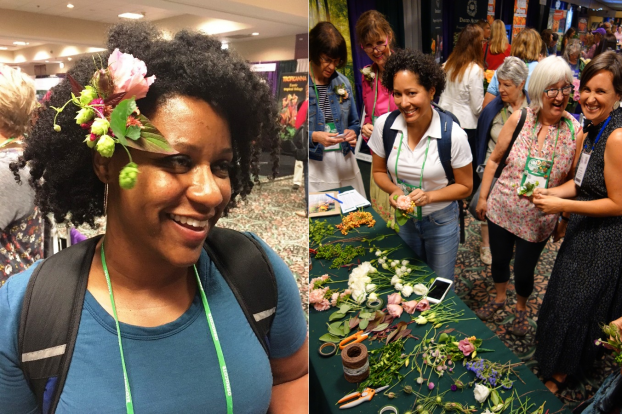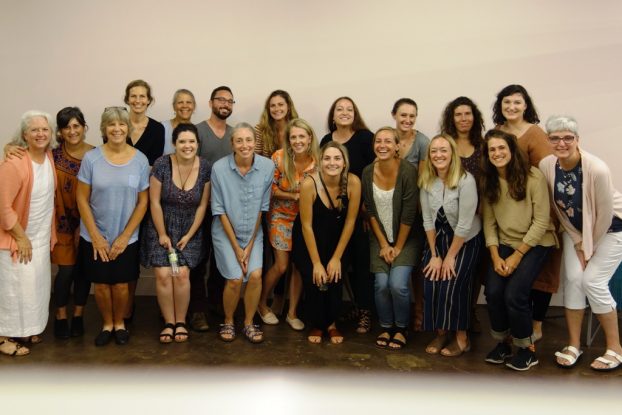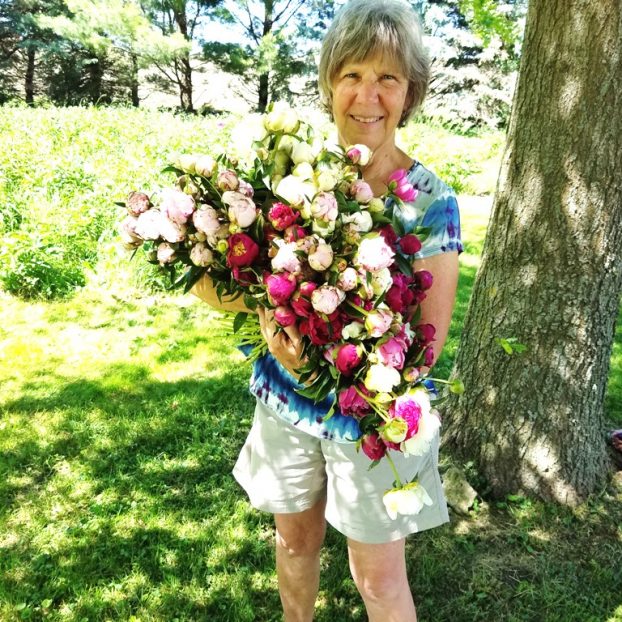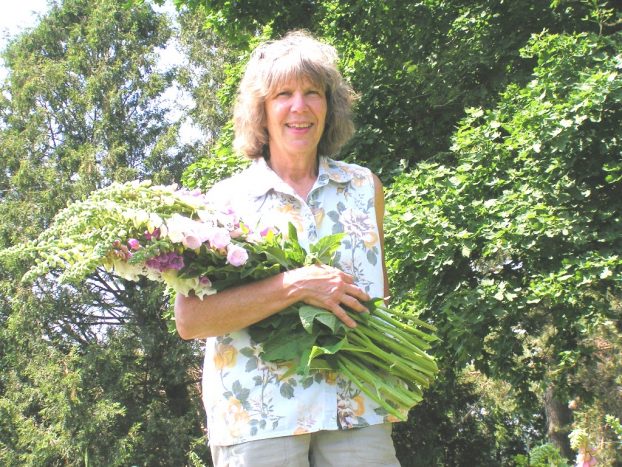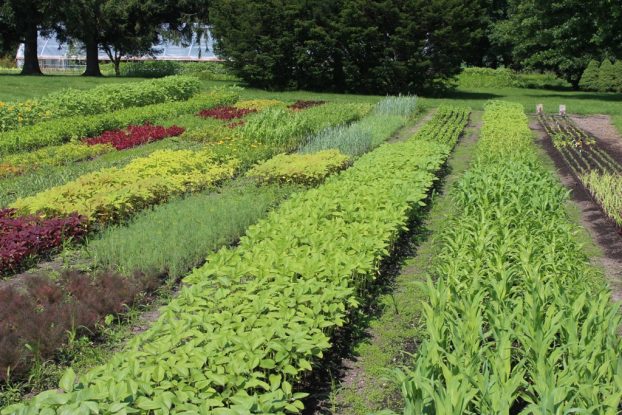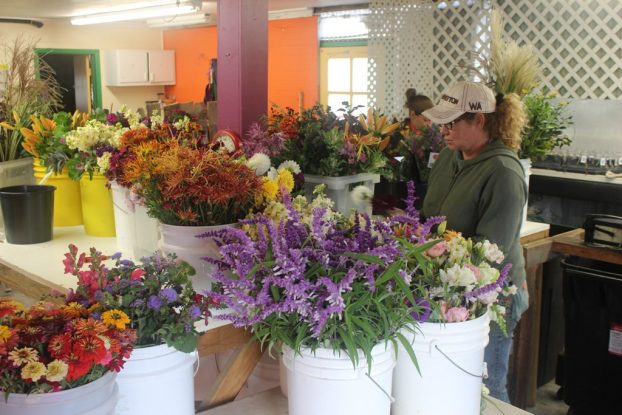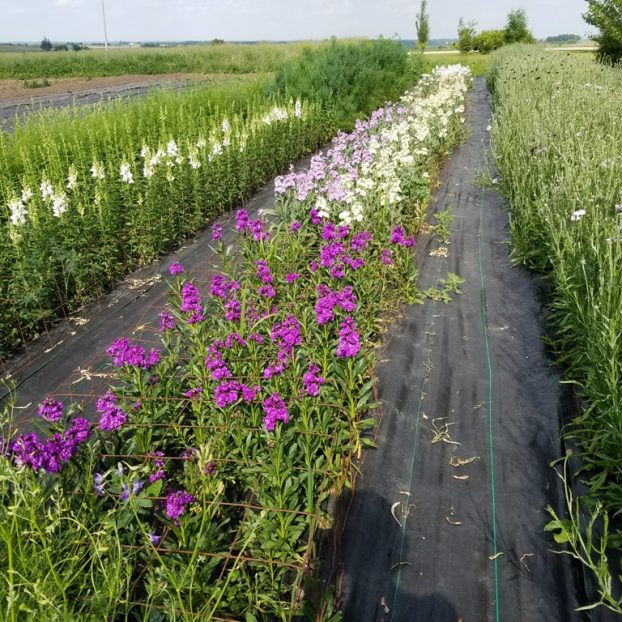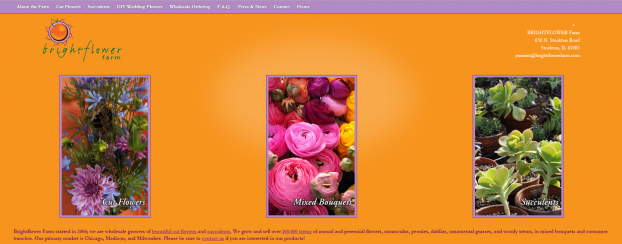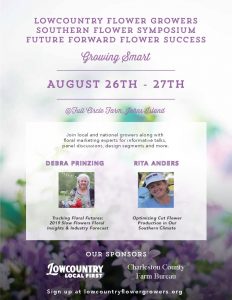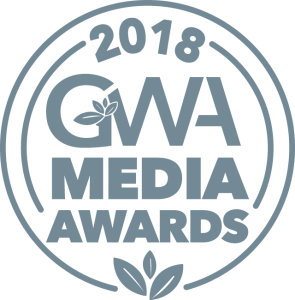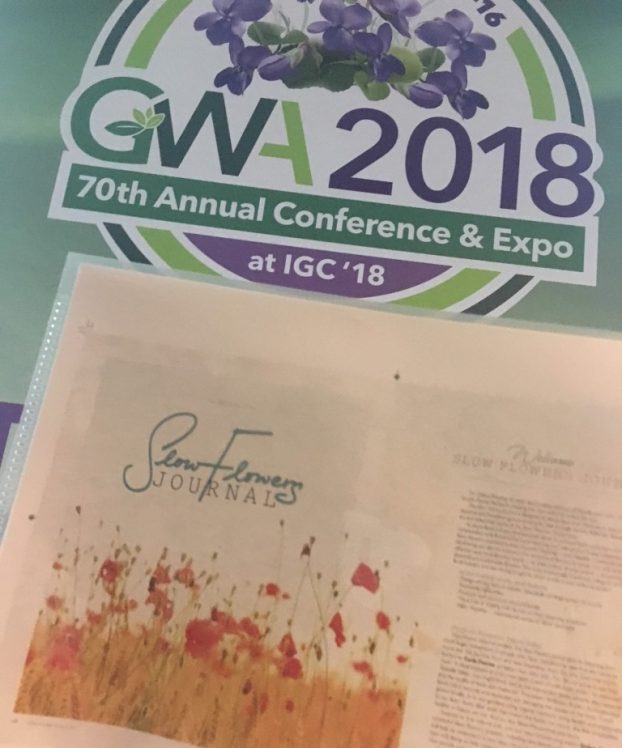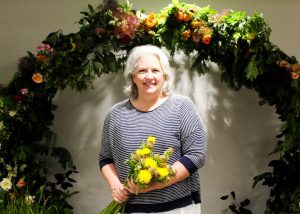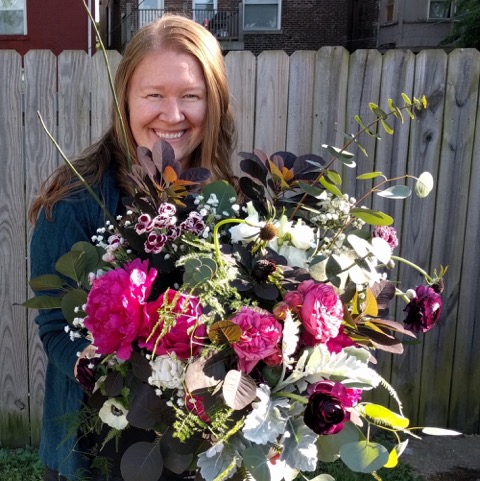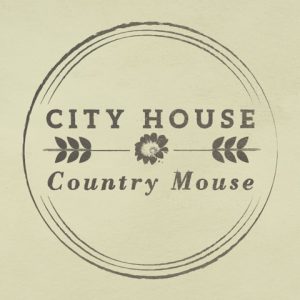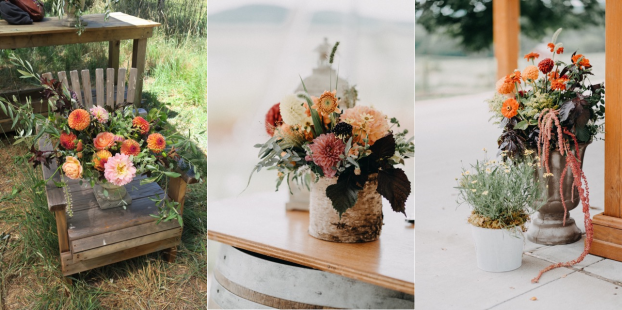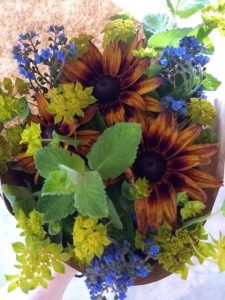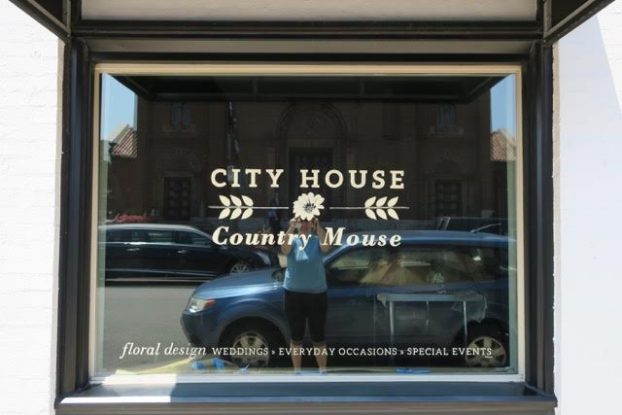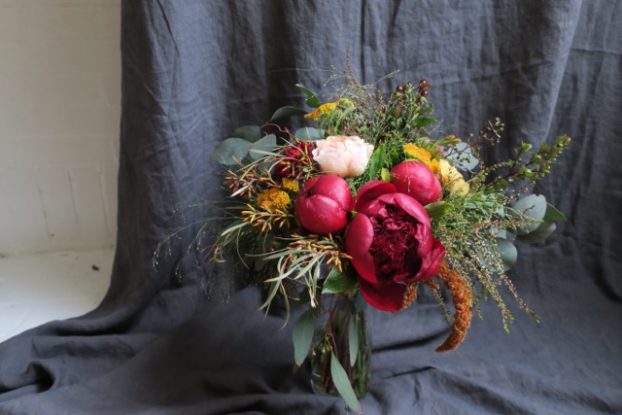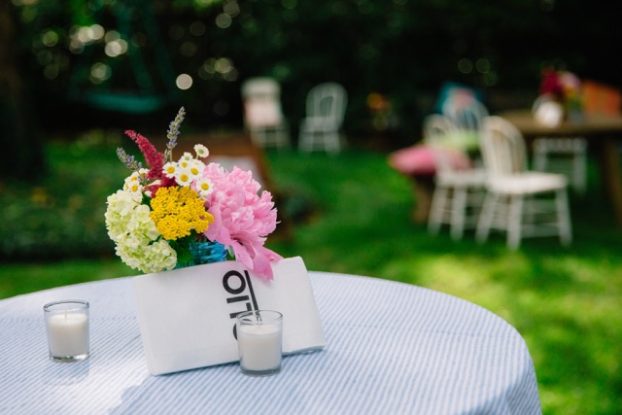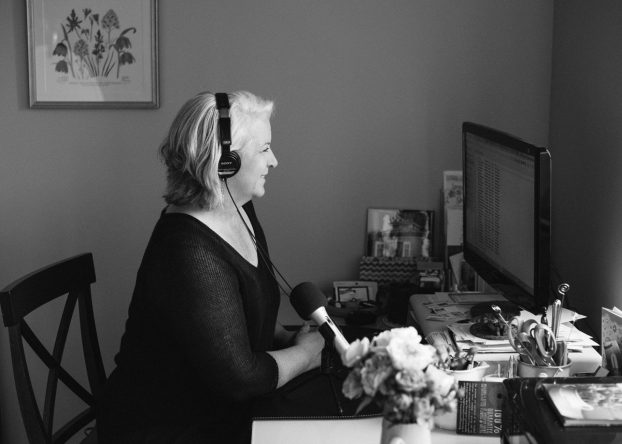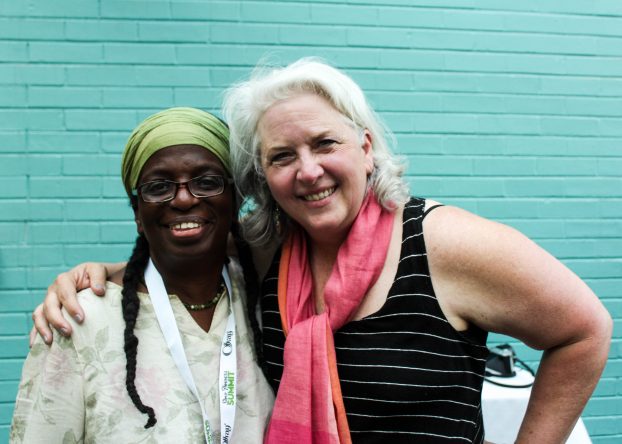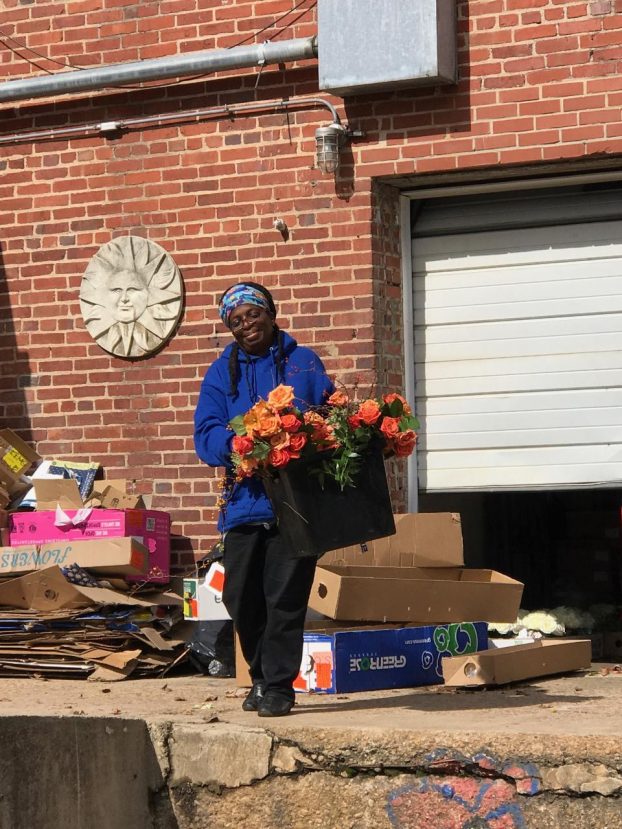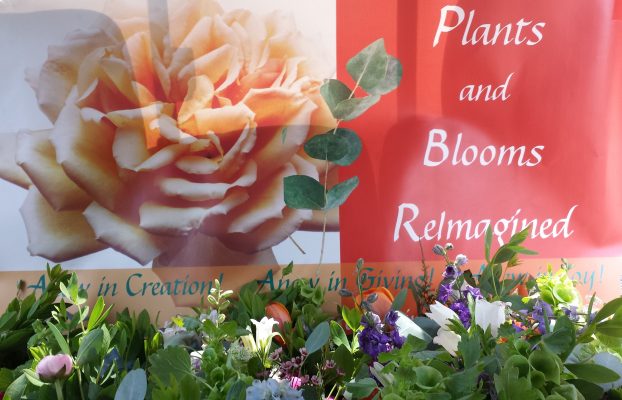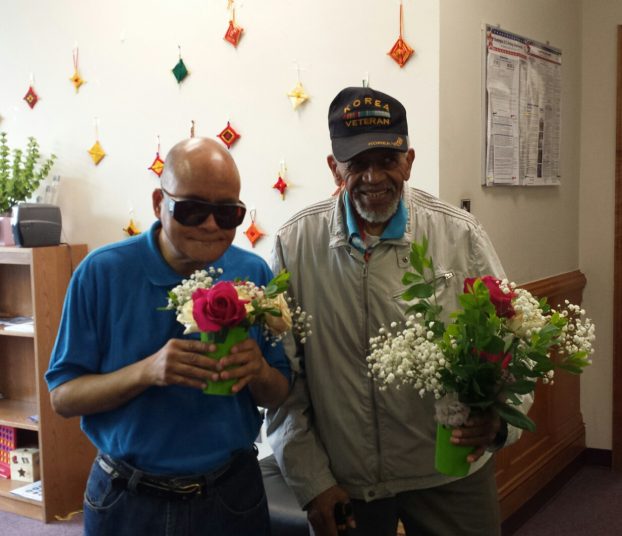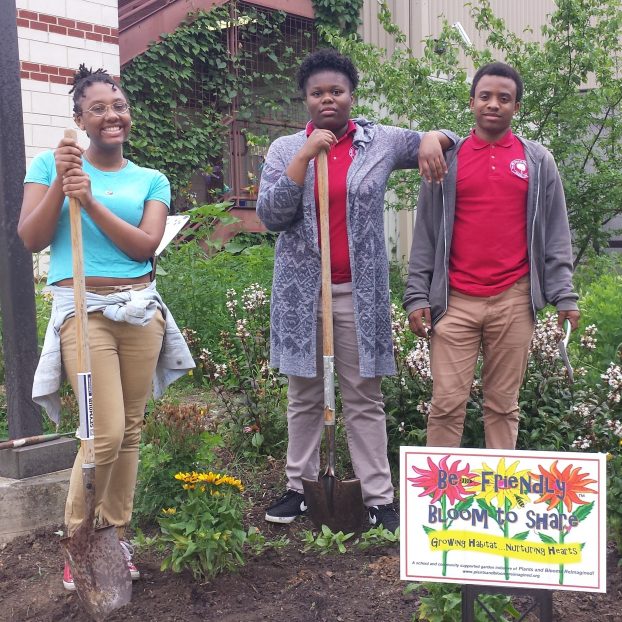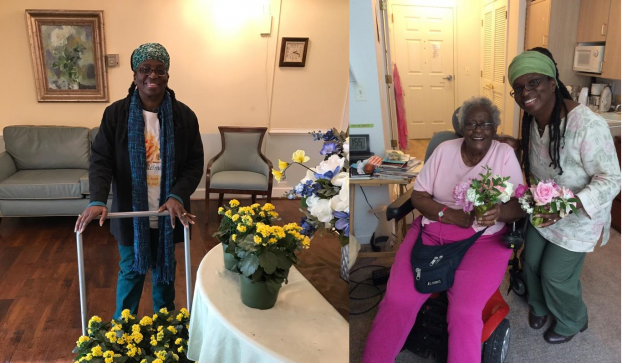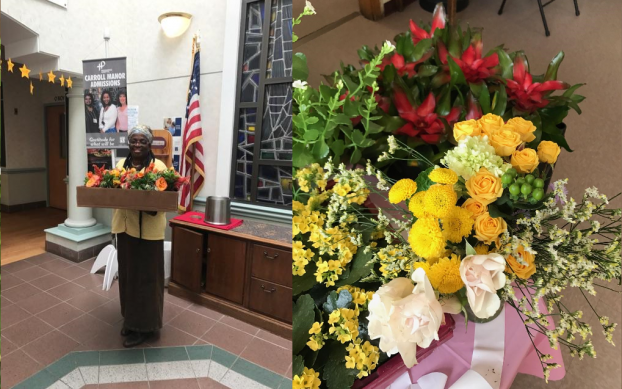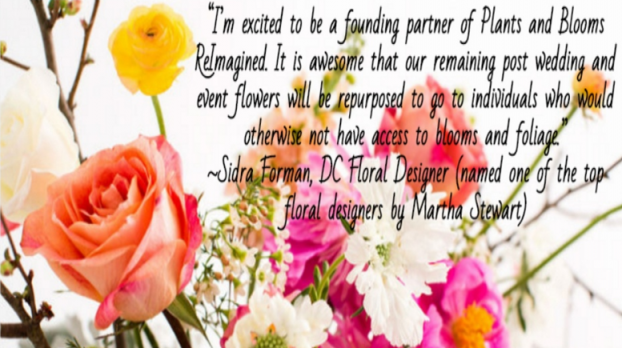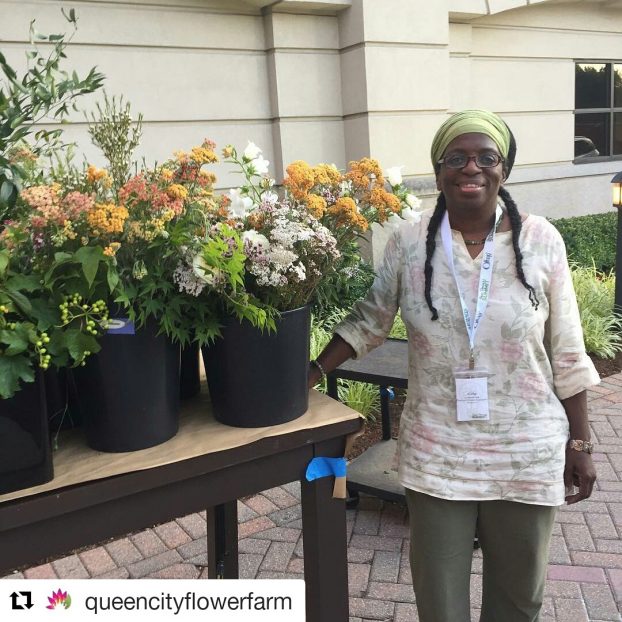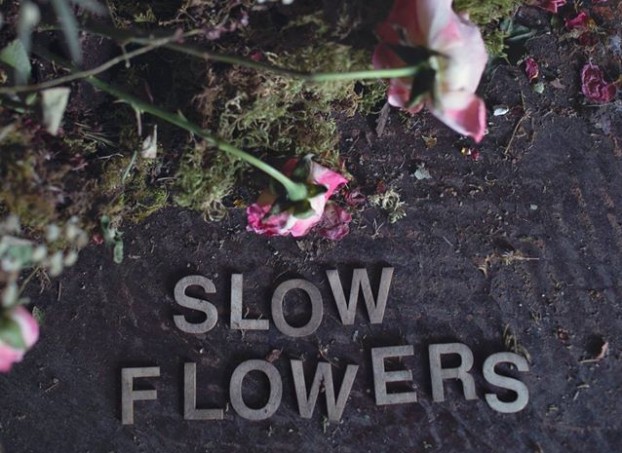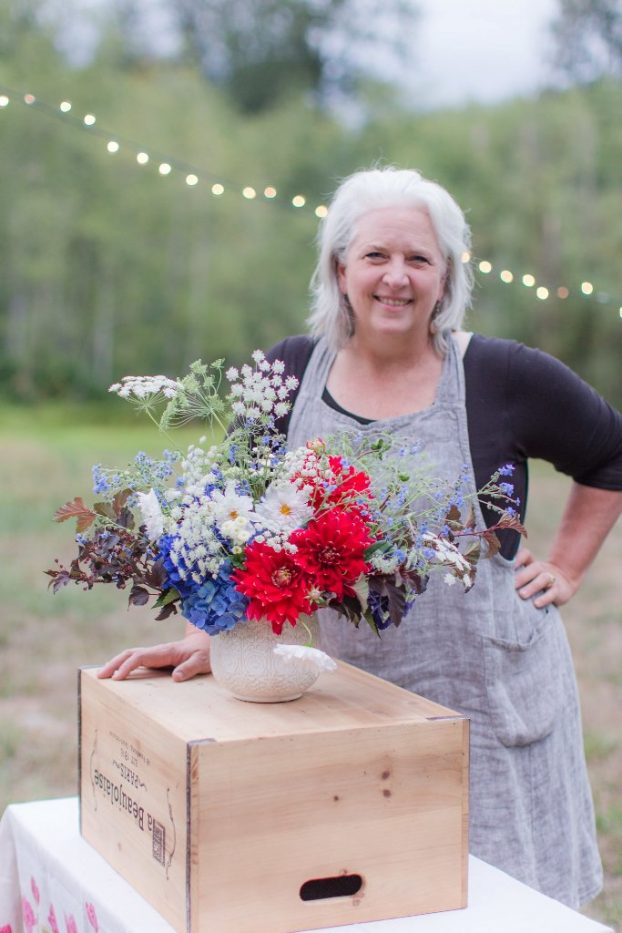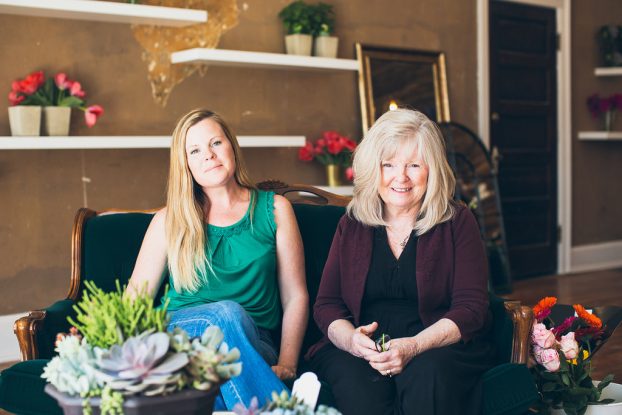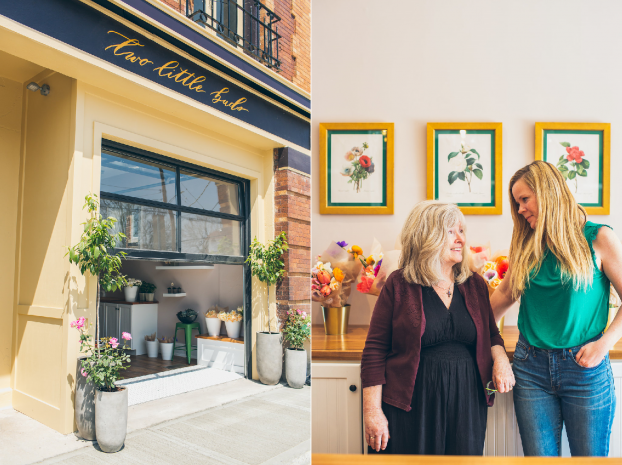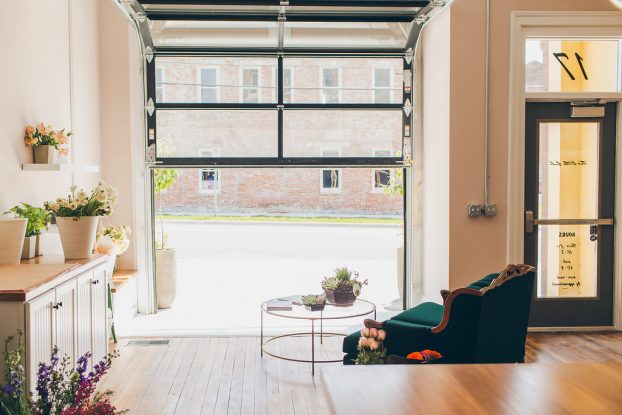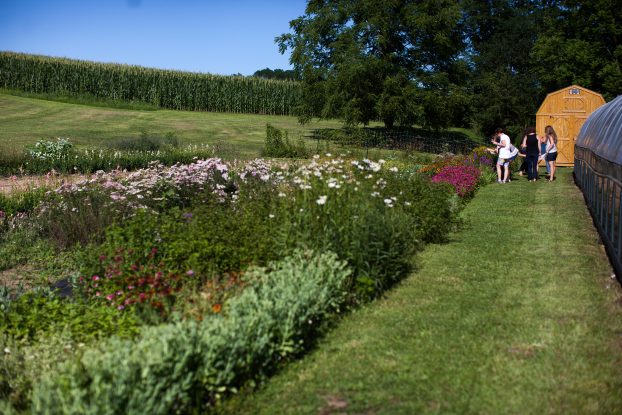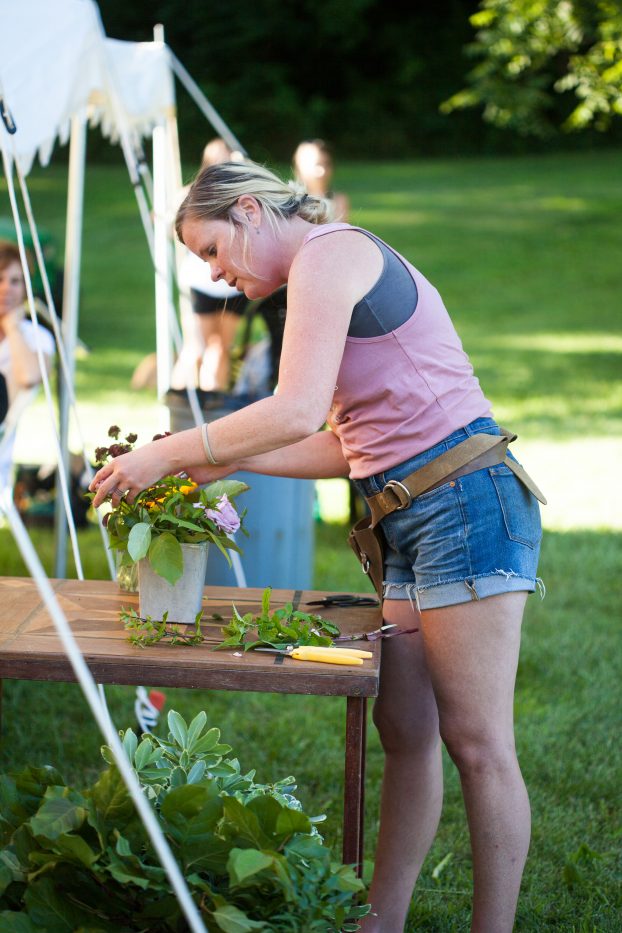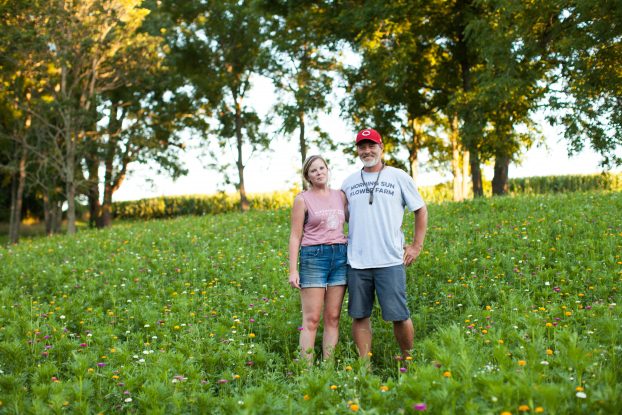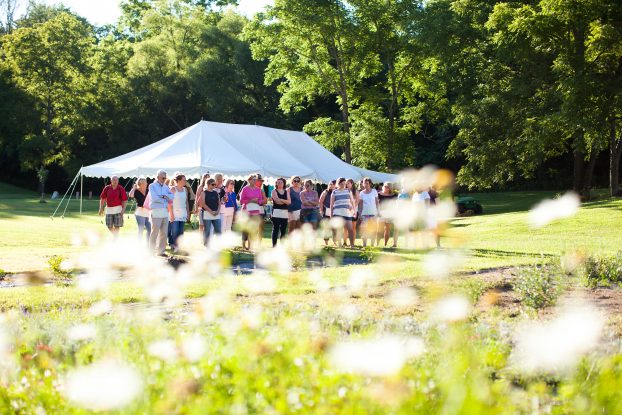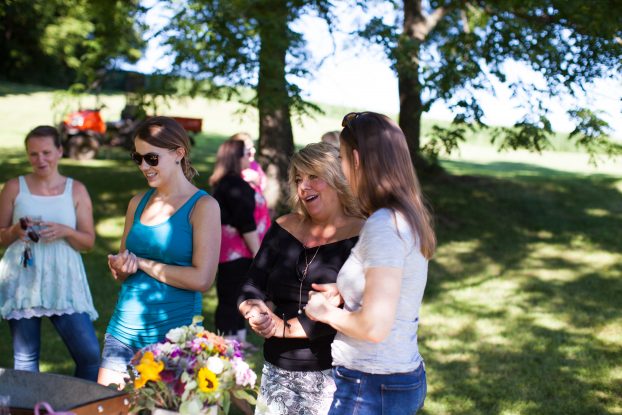Podcast: Play in new window | Download
Subscribe: Apple Podcasts | Podcast Index | RSS | More
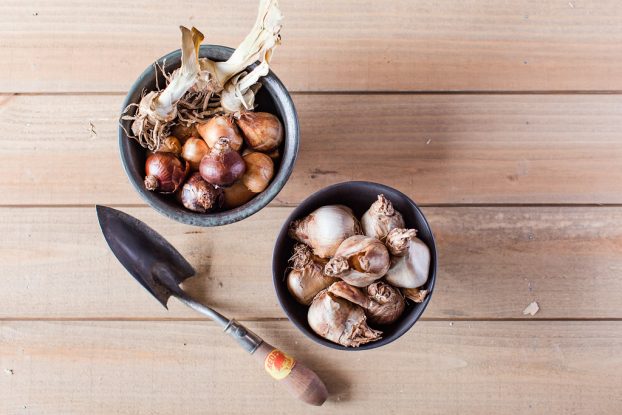
It’s time to plan and plant our spring-flowering bulbs! The anticipation of their colors, forms and fragrances in my garden — and vases — will carry me through the wet, gray months of winter! (c) Missy Palacol Photography

Here are three Longfield Gardens’ collections I’ll be planting in the Slow Flowers Cutting Garden this fall! From left: “Daring Forms” alliums; “Golden Glow” collection of narcissi and muscari; and “Flower Arrangers” tulip collection.
It’s October 3rd and for most of us around the country, it’s time to start thinking about planting our bulbs for next spring!
I recently immersed myself in this topic, thanks to an assignment from Garden Design magazine, whose editors asked me to interview Chanticleer Gardens’ plant information coordinator Eric Hsu. The article, “Planted Palettes,” is out in the magazine’s Autumn 2018.
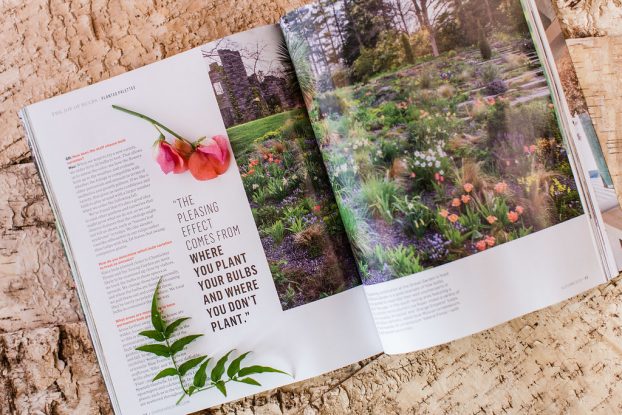
The Fall 2018 issue of Garden Design magazine features my article and Rob Cardillo’s images about spring bulb design at Chanticleer Gardens (c) Missy Palacol Photography
In writing the story, I learned volumes about designing spring landscapes and container gardens with familiar and unfamiliar bulbs. My 14-page article is illustrated with gorgeous images from Rob Cardillo, an award-winning photographer I’ve known for years through the Garden Writers Association. You’ll love every page, and the publication of what Garden Design magazine is calling its “Joy of Bulbs” issue has inspired me to focus on bulbs in today’s podcast.
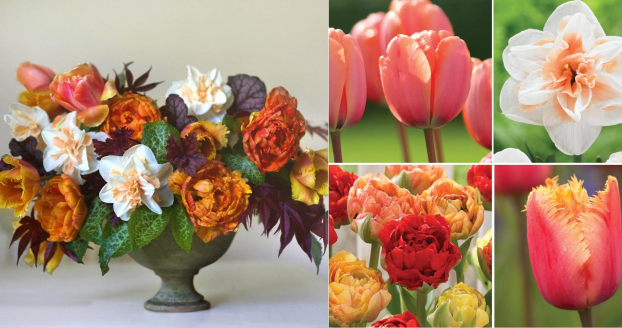
One of the most dazzling Longfield Gardens collections available to plant this fall! Designed by Alicia Schwede of Flirty Fleurs, the “Baroque” bulb collection.
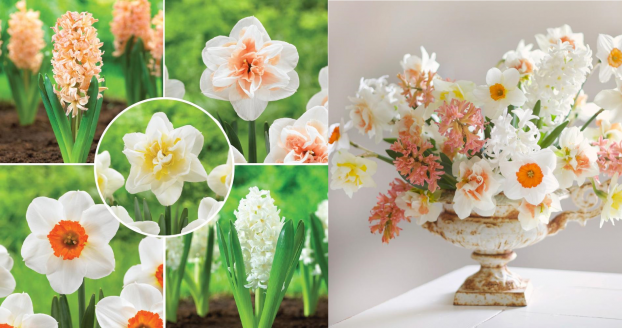
Another beautiful bulb collection, curated for Longfield Gardens by Alicia Schwede of Flirty Fleurs, called “Somerset”
I’ve wanted to visit Longfield Gardens’ U.S. headquarters in Lakewood, New Jersey, for a number of years. A trip to Philadelphia last week brought me pretty close to that spot, so I invited myself out to the Jersey Shore, about 90 minutes east of Philadelphia, to tour Longfields’ bulb operations and trial/test gardens.
My thanks to Longfield for sponsoring Slow Flowers for a number of years. I’ve worked closely with Kathleen Laliberte on bulb-themed stories and promotions and it’s Kathleen who helped arrange my visit. I’m so grateful that it all worked out to spend a morning there and meet with today’s guests, Hans Langeveld, co-owner of Longfield Gardens, and Jen Pfau, marketing director.
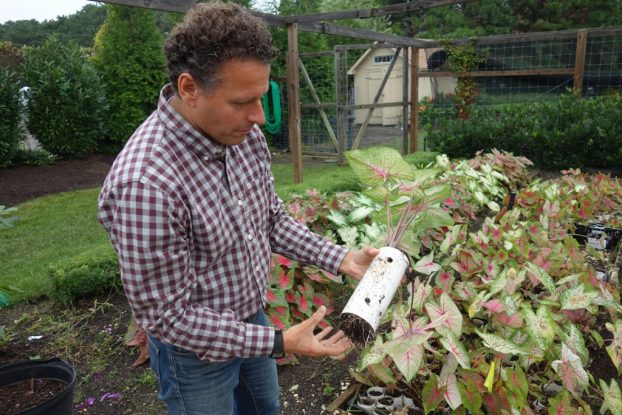
Hans Langeveld showed me how the caladium plants are grown for use in photo shoots! You can just pop these cylinder-planters into the landscape — easy!
Here’s a little bit more about them:
Hans Langeveld grew up in the heart of Holland’s bulb-growing region and has been involved in horticulture his entire professional career. As an enthusiastic gardener himself, he has a unique perspective on flowering bulbs that stretches from the breeders and growers in Holland to his own backyard in New Jersey. At Longfield Gardens, Hans is responsible for account management and quality control.
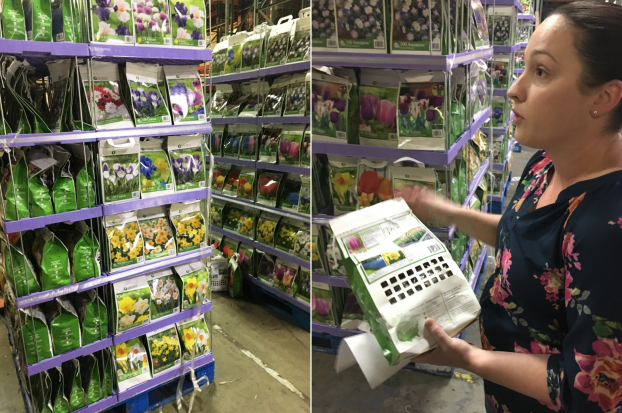
Left: The familiar packaging you’ll see at most Costco outlets this fall. Right: Jen Pfau shows the packaging’s planting and care instructions.
Jen Pfau grew up in a gardening family in New Jersey and graduated from the Cornell School of Agriculture with a degree in marketing. She joined Longfield Gardens in 2009 and launched the company’s online store in 2011. In addition to managing e-commerce, Jen is also deeply involved in the company’s wholesale business, where she oversees product selection, merchandising, marketing and the customer experience.
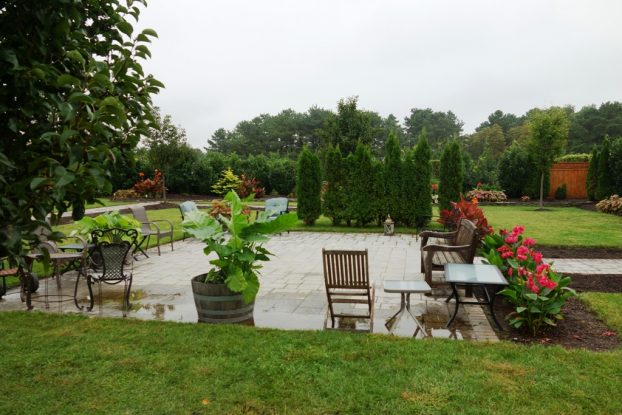
Yes, the dahlia season is winding down but the planting beds at Longfield’s Test and Display Garden in Lakewood, New Jersey, are ready for spring bulbs!
Here are some of the online resources from Longfield:
Find Longfield Gardens’ catalog of bulbs to order and plant this fall here.
Library of Resources and Articles about Fall-Planted Bulbs
Follow Longfield Gardens’ social places here:
Enjoy videos on planting and more.
Longfield Gardens on Instagram
Longfield Gardens on Pinterest
Fall is in the air and I think we’re all ready for it. That said, there’s still the promise of spring 2019, thanks to visions of bulbs in our dreams! Thanks so much for joining me today as we discussed all the things we need to know about bulb planting for cutting gardens, landscapes and containers.
We have a vital and vibrant community of flower farmers and floral designers who together define the Slow Flowers Movement. As our cause gains more supporters and more passionate participants who believe in the importance of the American cut flower industry, the momentum is contagious.
I know you feel it, too. I value your support and invite you to show your thanks and with a donation to support my ongoing advocacy, education and outreach activities. You can find the donate button in the column to the right.
The Slow Flowers Podcast has been downloaded more than 365,000 times by listeners like you. Thank you for listening, commenting and sharing – it means so much.
Thank you to our sponsors who have supported Slow Flowers and all our programs.
Florists’ Review magazine. I’m delighted to serve as Contributing Editor for Slow Flowers Journal, found in the pages of Florists’ Review. It’s the leading trade magazine in the floral industry and the only independent periodical for the retail, wholesale and supplier market.
Arctic Alaska Peonies, a cooperative of passionate family farms in the heart of Alaska providing bigger, better peony flowers during the months of July and August. Visit them today at arcticalaskapeonies.com
Seattle Wholesale Growers Market, a farmer-owned cooperative committed to providing the very best the Pacific Northwest has to offer in cut flowers, foliage and plants. The Growers Market’s mission is to foster a vibrant marketplace that sustains local flower farms and provides top-quality products and service to the local floral industry. Find them at seattlewholesalegrowersmarket.com
Longfield Gardens provides home gardeners with high quality flower bulbs and perennials. Their online store offers plants for every region and every season, from tulips and daffodils to dahlias, caladiums and amaryllis. Visit them at longfield-gardens.com.
Syndicate Sales, an American manufacturer of vases and accessories for the professional florist. Look for the American Flag Icon to find Syndicate’s USA-made products and join the Syndicate Stars loyalty program at syndicatesales.com.
Johnny’s Selected Seeds, an employee-owned company that provides our industry the best flower, herb and vegetable seeds — supplied to farms large and small and even backyard cutting gardens like mine. Check them out at johnnysseeds.com.
Association of Specialty Cut Flower Growers. Formed in 1988, ASCFG was created to educate, unite, and support commercial cut flower growers. It mission is to help growers produce high-quality floral material, and to foster and promote the local availability of that product. Learn more at ascfg.org
Mayesh Wholesale Florist. Family-owned since 1978, Mayesh is the premier wedding and event supplier in the U.S. and we’re thrilled to partner with Mayesh to promote local and domestic flowers, which they source from farms large and small around the U.S. Learn more at mayesh.com.
Certified American Grown Flowers. The Certified American-Grown program and label provide a guarantee for designers and consumers on the source of their flowers. Take pride in your flowers and buy with confidence, ask for Certified American Grown Flowers. To learn more visit americangrownflowers.org.
And the Team Flower Conference – a professional floral event where flower lovers from all over the world gather for networking, learning, and celebration. It’s a special time for the floral industry to come together and whether you’re a farmer, designer, wholesaler, or just love flowers, you’re invited to attend as Team Flowers dreams big for the industry’s future. Head to teamflower.org/slowflowers to learn more about the 2019 conference in Waco, Texas!
I’m Debra Prinzing, host and producer of the Slow Flowers Podcast.
Next week, you’re invited to join me in putting more American grown flowers on the table, one vase at a time. And If you like what you hear, please consider logging onto iTunes and posting a listener review.
The content and opinions expressed here are either mine alone or those of my guests alone, independent of any podcast sponsor or other person, company or organization.
The Slow Flowers Podcast is engineered and edited by Andrew Brenlan. Learn more about his work at soundbodymovement.com.










